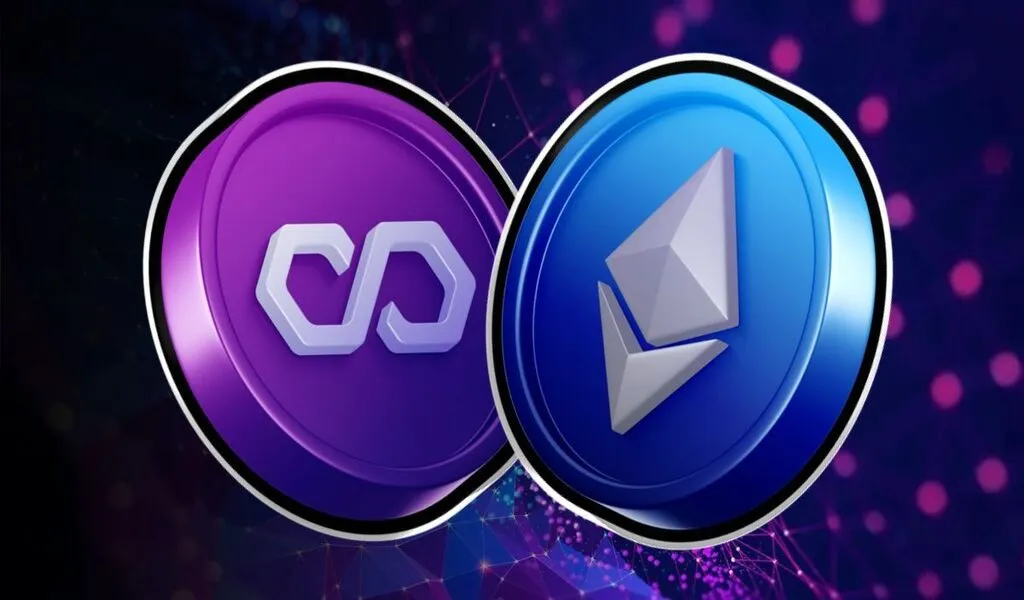Cryptocurrency
Should I Choose Polygon or Ethereum?

Ethereum is a public and open-source blockchain platform developed by Vitalik Buterin in 2015. Its main purpose is to help in the development of smart contracts and dApps.
Ethereum is a Turing complete blockchain, meaning it has the ability to run any type of smart contract and app. It is an open-source project and allows users to develop secure and reliable projects.
Ethereum creates its own blockchain protocol through its smart contract language Solidity. On the other hand, Polygon is a scalability and interoperability solution designed on Layer 2 of Ethereum. A good cryptocurrency exchange, such as bitcoin 360 ai, will only accept coins that have proven use cases and are now being traded by individuals.
Here are few of the main similarities and differences among Ethereum and Polygon:
Main Similarities among Ethereum and Polygon
Both Polygon and Ethereum are based on the EVM (Ethereum Virtual Machine). Because the Ethereum and Polygon platforms are open-source and decentralised, anyone may create their own applications and smart contracts on them sans being subject to any centralised control.
The open-source licenses provided by these platforms give users the freedom to modify and distribute their projects. Both Ethereum and Polygon also share that they are both Proof of Stake (PoS) based, which means that the consensus algorithm of their common currency is PoS. While Polygon has always been built on Proof of Stake (PoS), Ethereum is currently making the switch from PoW to PoS.
Both platforms support various programming languages that are used for dapps and smart contracts. Solidity is the main language used for contracts developed on Ethereum. The Viper and Rust languages can also be used to develop dapps and smart contracts on Ethereum and Polygon.
What are the Differences among Ethereum and Polygon?
Ethereum and Polygon are blockchain platforms, but there are several key dissonance among them. Here are some of the main differences:
Centralization
Ethereum currently has a high dependency on miners. Ether minerals are needed so that transactions can be processed on the network and smart contracts can be executed.
This means that Ethereum requires various miners, who verify transactions and operate the network. In contrast, Polygon is intended to be more decentralised and less reliant on a certain number of validators (also known as validator nodes directly).
Scalability
One of the key distinctions among Polygon and Ethereum is scalability. Ethereum might only be able to handle a certain number of transactions per second, which would lead to increased gas costs and longer transaction times.
Because of this, the number of transactions per second on Ethereum’s native chain can be limited. On the other hand, Polygon is a layer 2 scaling solution and therefore separate from the main chain of Ethereum.
The Layer 2 network developed by Polygon can process much more transactions per second and is, therefore, faster and more efficient than Ethereum. This provides more through scaling to the polygons and provides more convenience to the people.
Cost
The cost of getting a block can be high due to the high gas fee in Ether (ETH). Ethereum pays high gas fees for Lukex, which can lead to a rise in economic burden for the user. Compared to Polygon, it has very low transaction fees which makes it more affordable for the users.
It is a layer 2 scaling solution and hence uses countersignature protocol, in which more transactions happen on top of the external chain and helps to avoid high gas fees. Due to this, very low fees have to be paid for transacting in Polygon, giving users the convenience of more economic usage.
Use cases:
The main use of Ethereum is for developing DApps and smart contracts. Ether (ETH) is a decentralised and open-source platform in which smart contracts can be developed, executed, and maintained. It also serves as a showcase for dApp development and helps users design their own smart contracts for various dApp projects.



























